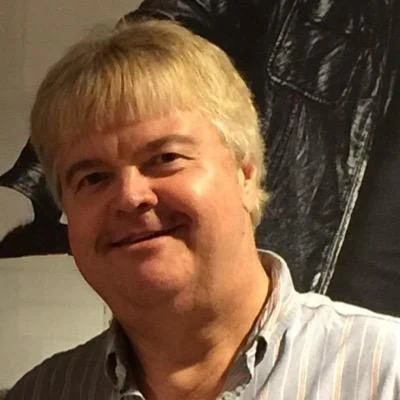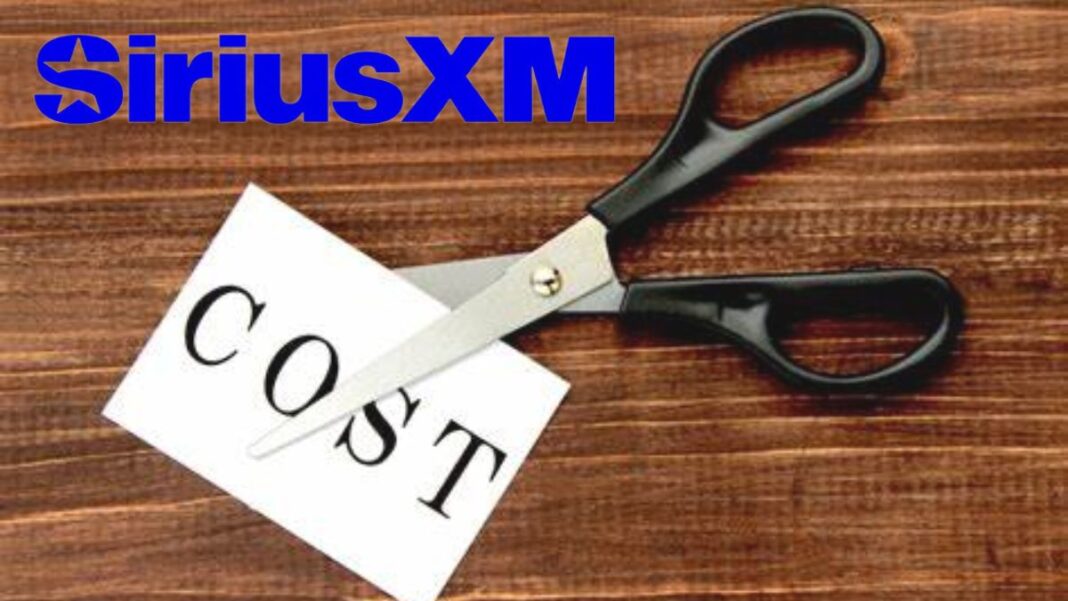Mike O’Malley is a respected Country consultant and best-selling author.
Mike has worked as a PD in Baltimore, Washington, DC, and New York City, where he flipped WYNY to Country in 1987.
Mike and Jaye Albright founded Albright and O’Malley in 1993. Since then, Becky Brenner and Kenny Jay have joined the company. Mike holds a BS from Ohio University and an MS from Florida State.
He is a 2018 inductee into the Country Radio Hall of Fame.
Mike’s also an Amazon #1 Bestselling author of a paranormal-mystery-comedy series called the “Stan and Mo Chronicles” set in Atlantic City in 1972. LAST BUT NOT FLEECED (Book 1) and PIER PRESSURE (Book 2) are available on Amazon and free to read using Kindle Unlimited. DOG AND PHONY SHOW (Book 3) will be released in May 2025.
Mike encourages people in the radio industry to leverage their personal brand while employed in radio and offers solid advice on career paths after leaving the industry.
He is this week’s featured consultant.
Jeff Lynn: I recently spoke with two radio people who are retiring after 49 and 40 years in the business. Those days are over. How do you go about preparing for a potential post-radio career?
Mike O’Malley: If you’re retiring, don’t retire FROM something; retire TO something. Start by thinking or listing things you’ve wanted to do but haven’t had time for. Take the most significant two and make them your “retirement career path.” I suggest picking two in case one, for whatever reason, doesn’t work out.
If retirement is not on your horizon, while you’re still working is the perfect time to take inventory of all you are good at. If you list everything, you might find you possess more skills than you thought you had or skills that can be combined to your advantage.
Then, while you still have radio’s huge platform to work with, leverage your visibility and marry your best skill or skills to your name. This is one of those “timing is everything” instances. Don’t wait until you lose your platform.
If you’re a talent, volunteer your services as a host, MC, or spokesperson for a charity. Get in front of as many people as you can. Don’t ask for money other than expenses if you must. Exposure is your windfall.
If you have other expertise, give a generous amount away. Your mission is to be thought of as an expert, so parcel out helpful information in a regular stream.
JL: What industries dovetail with radio experience?
MO’M: Whether on the air, in sales, or in management, we live in an industry powered by storytelling. So, anything related could be an opportunity. A radio person’s skill set could be highly useful for a content and/or marketing strategist, a creative or administrative position at a marketing, advertising, or public relations firm, a promotions and special events manager/coordinator for everything from a retailer to something involving your city, county, or state. Your marketing and promotional background, plus your knowledge of radio, could present an opportunity to work with artists, especially those just emerging.
Your skills will be valuable if you decide to go the coaching route. Mentoring could also open doors to opportunities you might not as yet have considered.
JL: How can you inventory your skills to determine what might be another career path?
MO’M: One of the interview questions I’d always ask of a candidate was, “What was your greatest achievement?” That’s a good place to start. Recall what went into the outcome and break those down into individual skills. For me, one of several proud moments was as a programmer when WYNY became the first Country station to raise $1-million in a single weekend radiothon for St. Jude’s Children’s Research Hospital. A breakout of skills for that could include planning and organization, promotion, logistics, scheduling and coordinating entertainment, storytelling, selling, motivating staff and partners, and being a dual brand ambassador for the station and St. Jude’s.
You can use a skills matrix to evaluate qualities you believe you will need in the future. This will visually display both your strengths and areas that could use shoring up. For the latter, consider attending workshops or joining groups whose members are all trying to improve themselves in the same area. You could also give yourself challenging assignments to generate ideas that you can then evaluate and improve upon.
JL: What are the first steps to take when you are downsized or laid off?
MO’M: Ideally, you’ve prepared for the possibility, so hit “launch” on your pre-made plans as close to your departure as possible for maximum visibility and leverage. You’ll likely receive some mention in the trade magazines, so you’re smart to have already prepared something positive to accompany the coverage. Try weaving in a positive call to action for yourself as well.
If you haven’t created a plan, here are three ideas to help you start.
1 – Network for mutual benefit. Initiate regular back-and-forths with others, with each party sharing insights and ideas. Make your network as large as you can manage and still be a valuable contributor.
2 – Have a social media plan ready to launch, including material for at least a couple of weeks. Include your latest projects (you need to have some) and some photos.
3 – Create a visibility plan that keeps you in front of others. Articles, quick weekly newsletter, podcast, a series of free ideas (Freebie Friday?), tips about your hobbies, etc. Whatever you choose, be sure to have a few weeks’ worth of material already prepared. Also, create an appearance calendar allowing you opportunities for in-person visibilities.
JL: Are there courses or college credits people can take that will help them transition to life after broadcasting?
MO’M: Possibly, but I don’t have a universal suggestion for that. I do recommend, though, to find groups of people who are interested in some of the same things that you are. Those are an opportunity to grow both your network and your skills.
JL: What are the most valuable skills to have or develop for use in another industry?
MO’M: The ability to effectively communicate succinctly is my pick for number one. I’m hard-pressed to think of a situation where this would not be helpful. Many of the greatest and most emotional stories have been told (sung) in less than three minutes. Some of the strongest brands have been built sixty seconds at a time. The best talent can connect with us in 15 seconds.
Even long-form media becomes stronger with editing. Movies have the proverbial “cutting room floor.” Novels have scenes or even chapters that get sent to the waiting room, so that’s what’s left, is more powerful. My editor has helped me considerably in this with my novels, so don’t be afraid to ask for help.
What you’re after is efficiency without emotional loss. This intensifies the flavor, packing a wallop like a tablespoon of orange juice concentrate before you add water.
I don’t know if empathy qualifies as a skill, but having it is an asset. When you can consider a situation from another’s viewpoint, you have a greater opportunity to communicate effectively. If “empathy” sounds too squishy, substitute “insight.” Either way, you and the people you interact with, will be the better for it.
JL: If people leave the industry in their mid-40s or early 50s, how can they get a potential employer to see their value vs. a younger person who will probably work for less money?
MO’M: A career in radio means we have skills that others may not. Or at least may not have yet had the time to hone.
Any other applicants have to prove themselves to have upwards of a half-million critics daily? Must make their points in less than half-a minute? Are undaunted by public speaking? Possess the self-confidence (and nerve) to reveal inner pieces of themselves to total strangers? Have experience in endorsing clients and products? On the fly, create a story about a company, product, employee, or benefit. Thrive in radio’s “urgency” environment where everything revolves around seconds and minutes, not hours or days?
JL: What was the best piece of career advice you ever received?
MO’M: That’s a tough one. People have been very generous over the years, so it’s hard to single one out. However, one phrase that has stuck with me over the years is “Somebody gave me a chance.” Bill “Dex” Poindexter used it multiple times as he recounted his career in his 2013 Country Radio Hall of Fame acceptance speech. I love that phrase. So many of us are where we are today because someone took a chance on us. Thanks again, Dex, for those words of encouragement to all of us.
Final thought: When you leave, stuff your negatives in hefty bags and old suitcases and leave them at the curb for pickup on trash day. Dragging them along will only slow–and weigh–you down. Instead, pack light. Bring your best skills and only your best memories.
MikeOMalleyAuthor.com
Mike@MikeOMalleyAuthor.com
Get exclusive content – Sign up for Mike’s free newsletter here.


Jeff Lynn serves as Editor of Barrett Media’s Music Radio coverage. Prior to joining Barrett Media, Jeff spent time programming in Milwaukee, Omaha, Cleveland, Des Moines, and Madison for multiple radio groups, including iHeartMedia, Townsquare Media, NRG Media, and Entercom (now Audacy). He also worked as a Country Format Editor for All Access until the outlet shut down in August 2023.
To get in touch with Jeff by email, reach him at Jeff@BarrettMedia.com.









